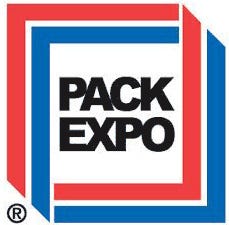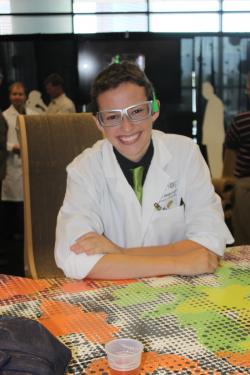Packaging schools work to boost youth’s engagement with the field
Chicago, IL - Brian Welt, coordinator of the University of Florida's packaging-engineering program, believes many students share a common misconception when it comes to packaging jobs.
November 8, 2012
 Chicago, IL - Brian Welt, coordinator of the University of Florida's packaging-engineering program, believes many students share a common misconception when it comes to packaging jobs.
Chicago, IL - Brian Welt, coordinator of the University of Florida's packaging-engineering program, believes many students share a common misconception when it comes to packaging jobs.
"A lot of students don't even know it's a career," he told PlasticsToday at Pack Expo 2012 (October 28-31; McCormick Place, Chicago). "And, as a result, they don't realize how great the opportunities are for the industry."
The most important asset for any company is its workforce. If you measure on the basis of gross sales, packaging is the world's third-largest industry, featuring a variety of jobs from engineering to design to the conversion of raw materials.
Still, projections show that the need for skilled packaging professionals far exceeds the number of packaging graduates.
"I think the packaging industry is the best kept secret in design and manufacturing," said Jim Higley, professor of Mechanical Engineering Technology at Purdue University. "There's a bright future for those who go into packaging, but the key is to get students excited about it."
At Pack Expo, schools such as Michigan State University, Clemson University, Virginia Tech and more, had booths in the education and workforce development pavilion where representatives from companies all across the industry could learn more about the respective packaging schools.
Higley said the Purdue Center for Packaging Machinery Industry has more than 30 undergraduate students, with several graduate students, and describes the program as "slowly growing." The school was established through a mutually beneficial partnership between the industry and Purdue Calumet's School of Technology.
Higley said the school has a specialized focus on automation.
"Once they're comfortable with automation, there's a wide range of opportunities they can get into," he said. "Whether the economy is up or down, this industry keeps hiring."
 Bob Moore, lecturer at the Department of Food, Nutrition, and Packaging Sciences College at Clemson University, is direct with his opinion on recruitment.
Bob Moore, lecturer at the Department of Food, Nutrition, and Packaging Sciences College at Clemson University, is direct with his opinion on recruitment.
"We don't do recruiting," he said. "We are bursting at the seams."
Clemson's Department of Food, Nutrition, and Packaging Science has more than 400 undergraduates and over 50 graduate students. Clemson offers one of seven packaging science undergraduate degree programs in the U.S. and has a student-teacher ratio of about 15:1. The undergraduate curriculum element is about 60% lectures/classes and 40% labs.
Moore said their students from the college have a 100% job placement rate. Some recent hires from the college include packaging engineers for both Sonoco and Kraft.
"The issue is not finding a job but the problem is choosing one," he said. "When you think about how everything comes in a package, that's a lot of job opportunities."
Clemson takes a group of students to Pack Expo every year. Moore said it's important because the students not only see how big the industry is, but they also get to meet key players in the field.
Isaac Levin, a senior in Clemson's Packaging Science program, said the school really covers the bases on every aspect on the industry from machinery to the application of polymers in packaging. The school also offers a course on packaging career preparation.
While Levin is interested in eventually pursing a master's degree, after he graduates in May, he's ready to join the workforce.
"I'm going to start looking for jobs because I want to get that real world experience," he said. "I feel packaging is one of the few markets that's actually growing."
Welt emphasized the importance of the relationship between companies in the industry and the school. The University of Florida Packaging Science curriculum, through the college of Agriculture and Biological Engineering, offers students a foundation in the pure sciences along with skills in core engineering courses.
When it came to drawing up the curriculum, Welt said they got quite a lot of feedback from the industry, including a request for workers with knowledge of fundamental engineering principles.
At the show, PMMI awarded the top prize in the fourth annual Student Packaging Solutions Contest to the team from the University of Florida hypothetical packaging proposal for a fictional company.
"They get to see the breadth of opportunities here," Welt said. "It gets the students excited about the future."
About the Author(s)
You May Also Like


